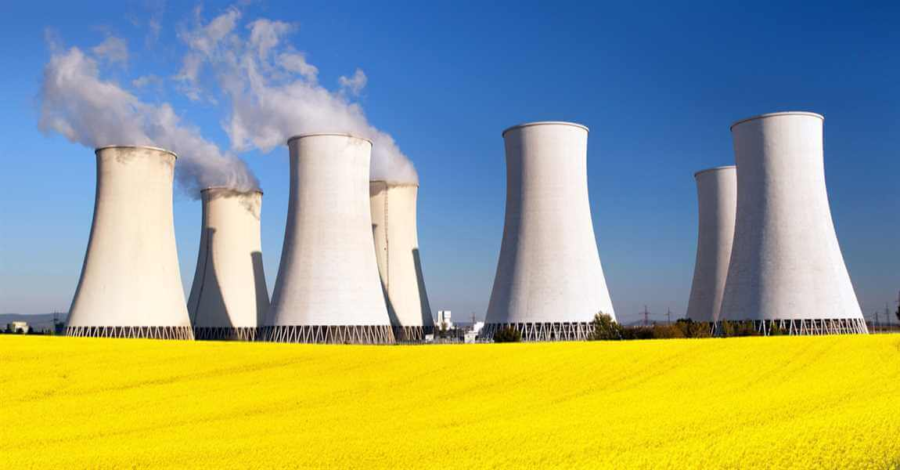Should we trust nuclear energy to combat the climate crisis?
March 7, 2021
To many in today’s society, there is no positive association with the term “nuclear”. Our minds shoot back to the traumatic experiences at Hiroshima and Nagasaki to end the Second World War. Or to the over forty-year stalemate between the USSR and the US during which the end of humanity was a concept teased by the leaders of both nations. Today, the splitting and fusion of the atom that caused the boom within the bomb are being put to a different use: the creation of nuclear energy.
Nuclear energy is the energy in the nucleus, or core, of an atom that can be used to create electricity. To release the energy from the atom, a process of nuclear fission is evoked to split the atom. Heat is produced by nuclear fission, which warms the reactor’s cooling agent, usually water. The water evaporates into steam, which turns turbines. Finally, the turbines drive generators, engines that create electricity.
A couple more things to understand: Rods of material called nuclear poison can adjust how much electricity is produced by the generators. The more rods, the slower and more controlled the chain reaction which produces the heat will be. Removing rods will allow a stronger chain reaction and create more electricity. Uranium is the fuel used to produce nuclear energy. Uranium atoms split apart relatively easily and the specific type of uranium can be found in larger quantities across certain areas of the world.
As of 2011, about 15 percent of the world’s electricity is generated by nuclear power plants. The United States has over 100 reactors generating in 38 states. Nations such as Lithuania, France, and Slovakia create almost all of their electricity from nuclear power plants.
So if nuclear energy is so easily produced to power homes, schools, businesses, and hospitals in the developed world, why don’t we utilize this type of renewable energy everywhere in our society? Some of you probably shudder when I say it: radioactive waste. More specifically, the storage sites for radioactive waste, a very controversial topic in the United States.
Radioactive waste is what is leftover from the operation of a nuclear reactor. It is long-lasting, meaning materials like clothes and tools can stay radioactive for thousands of years. The use of fuels, like uranium, and rods, nuclear poison, are extremely radioactive. The waste must be stored in special containers that look like large swimming pools. The water cools the fuel without making contact with the radioactivity, and some of these tanks are stored above ground. The problem occurs when there is a breach in these storage tanks, and one of the most tragic yet famous cases of this was in Chernobyl, Ukraine in 1986.
Chernobyl was caused by a steam explosion which caused a fire, called a plume. The plume was highly radioactive, causing fallout (a cloud of radioactive particles falling to the ground) affecting the surrounding area. Over 100,000 people were relocated after the disaster, and the number of human victims is hard to determine since the effects of radiation poisoning only appear years after exposure. The environmental impact was immediate, however. Kilometers around the facility, the forest dried up and died. The fish in the nearby river had so much radioactivity people could no longer eat them, and the cattle and horses in the area died.
With these risks in mind, can we trust nuclear energy to combat the existential climate crisis? Kyle Nisbet ‘21 believes that “there is a rightful fear of it, but I think risk-adjusted for the benefit, it’s worth it. Nuclear power can be trusted especially as it might need to be a part of the solution.” Patrece McAbee ‘22 shares a similar sentiment, “considering what I’ve learned in environmental science this year, I think it is worth the risk.” She continues, “with the state of our climate right now I think that you have to weigh the risks vs. the reward of a solution that could help long term.” Looking at it from a risk vs reward perspective is important, and I believe draws the conclusion that nuclear power is not only in our reach but is a necessary goal. That is not to say we shouldn’t be reducing the risk wherever possible, whether that be securing the storage of radioactive waste or improving the positioning of some power plants. Improvement in these areas would help calm the paranoia surrounding the topic, and hopefully, someday we’d be able to safely utilize the clean energy we have right in front of us.































